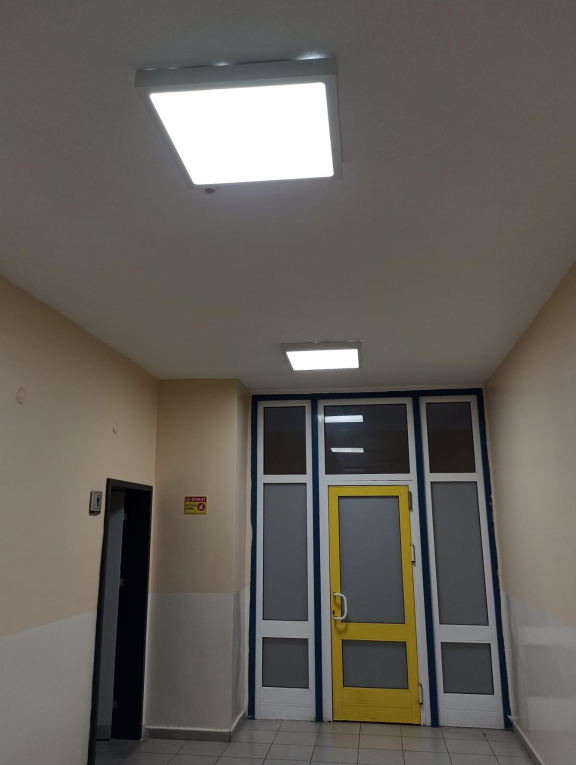Eskişehir Osmangazi University Sustainable Green Campus Strategy
Eskişehir Osmangazi University's Green Campus Strategy adopts a comprehensive approach that integrates the principles of environmental sustainability, climate-friendly practices, social responsibility and innovation. This strategy is based on national and international standards and relevant legal regulations and aims to increase efficiency in energy production, transmission and consumption in the university campus, to prevent unconscious use and waste, and to make energy costs sustainable. In addition, it includes important elements such as reducing greenhouse gas emissions within the scope of combating climate change, protecting natural resources with the land use and storm water management plan, and preventing environmental pollution with the waste management plan.
Eskisehir Osmangazi University Campuses are committed to taking actions in line with the strategic goals and objectives set by the Green Campus Strategy. In this framework, this strategy document, which constitutes the priority and important components of environmental and energy policy, aims to improve the sustainability and environmental impact of the university campuses.
In the short term, implementing energy and water saving policies, initiating and promoting recycling programmes, creating bicycle paths and public transport services to make campus transportation sustainable. In the medium term, investing in renewable energy sources, adapting campus buildings to energy efficiency standards, encouraging the purchase of environmentally friendly products. In the long term, constructing green buildings and updating existing buildings according to these standards, making education and research programmes sustainability-oriented, protecting and increasing natural areas within the campus.
ESOGU Sustainable Green Campus Sustainable Green Campus Coordinatorship was established in 2023. It has started infrastructure researches for energy efficiency, water efficiency and sustainable campus.
Energy Efficiency and Renewable Energy Use
1. Methods and measures to be applied in energy efficiency and saving will be determined. For this purpose, energy efficiency and saving potential studies will be conducted and an inventory will be created. These studies will be repeated in necessary periods.
2. Innovative and state-of-the-art applications for energy efficiency will be encouraged.
3. Necessary studies will be carried out for the establishment of an Energy Management System, the administrative structure will be reviewed within the framework of the requirements of this system, arrangements will be made, and in this framework, energy managers will be appointed and necessary initiatives will be taken to receive the necessary training.
4. Following the conduct of energy efficiency and saving studies, implementation methods (Efficiency Improvement Projects-VAP, Saving Projects-TSP) and their investment costs and return periods will be determined by foreseeing the efficiency improvement and saving potential.
5. - Necessary resources will be allocated in the budget for the realization of the applications accepted as “VAP” and “TSP”. Projects will be evaluated as short, medium and long term projects, short and medium term projects and initiatives will be started immediately within the framework of budgetary possibilities, while preliminary preparatory work such as projects, research, etc. will be carried out for long term projects.
6. External sources for financing “VAP” and “TSP” will be explored and necessary initiatives will be taken.
7. In energy consuming goods and services procurement and construction works, nationally or internationally accepted minimum efficiency criteria will be examined and possible changes will be made in the technical specifications for new buildings for this purpose.
8. Feasibility and feasibility studies will be completed for the gradual replacement of all kinds of equipment, machinery and vehicles that have completed their economic life in terms of energy efficiency with equipment that is more compatible with the environment and has high efficiency, and necessary initiatives will be taken in line with the decisions to be made according to the results of the studies and feasibility studies.
9. Increase the utilization rate of renewable energy systems in existing campus facilities.
10. Academic “Scientific Research Projects” for the research of renewable energy sources will be emphasized and supported.
11. Detailed and data-based potential studies for the conversion of wind and solar energy into electricity on and around the campus will be completed.
12. Necessary survey and feasibility studies will be carried out for the establishment of an energy monitoring system, for this purpose, necessary arrangements will be made in medium voltage transformers, electricity meters will be made electronically traceable, and necessary studies will be initiated if it is decided to establish systems as a result of the survey and feasibility studies.
13. Encouraging the use of energy-saving light bulbs for more efficient use of light sources on campus
Energy Efficient Appliances Usage
Eskişehir Osmangazi University aims to provide the best energy management and energy saving. All departments of the organization evaluate their own energy consumption and can use energy saving and sustainable technology such as insulation, LED lighting in each building.

Use of LED lighting and lamps with light detection

Timed Automation System Available in Heating and Cooling Systems
https://stratejibys.ogu.edu.tr/#/login
https://avesis.ogu.edu.tr/surdurulebilirlik

